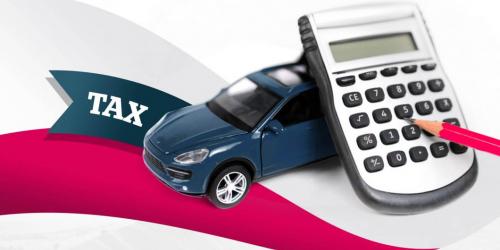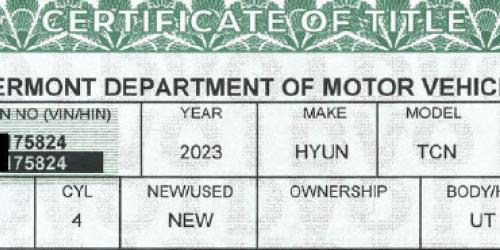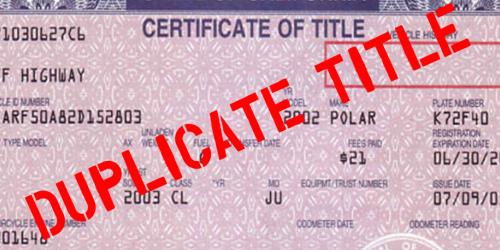A lien is usually placed on a vehicle when you first purchase it unless you pay the full cost with your own funds. A lien may also be placed on a vehicle if you refinance it. Your lien will be recorded on your title.
Once you title your vehicle in Vermont, the DMV forwards your title with the lien recorded to your lender (lien holder). You will receive the registration card and license plates if you have also registered the vehicle.
Check Title for Existing Liens
You can check the current lien status online at mydmv.vermont.gov. You will need the VIN; No owner or registration information is available through this service.
Releasing the Lien
When you pay off your vehicle loan, the lender must send you the title showing your lien as satisfied. When you receive the title, you can either:
- Exchange it for a clear title and pay the fee for a new title, or
- Keep the title that displays the lien as satisfied.
Transferring a Vehicle with a Lien
If there is an existing lien on your vehicle and you are transferring the vehicle to another individual, you must contact the lien holder. The lien holder must agree to this transfer and provide you with the Vermont title. If the buyer is assuming the unpaid balance of the loan and was not on the original contract, the lien holder should satisfy the existing lien and record a new lien for the buyer.
Undisclosed Lien
The vehicle has entered the titling jurisdiction from a jurisdiction that does not disclose lien-holder information on the title. The titling jurisdiction may issue a new title without this brand if no notice of a security interest in the vehicle is received within a jurisdiction-defined time frame.



